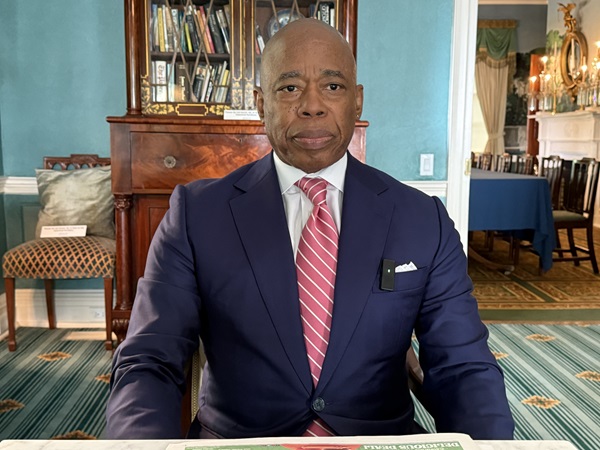How long will American exceptionalism endure?
Beyond economic and military might, America is seen--at least until recently--as the land of freedom, fairness, and opportunity, a place where dreams can still come true.
 Representative image / Canva
Representative image / Canva
Many nations and cultures can justifiably claim to be exceptional. Some are modern powers nation states like UK and the US which go back a few hundred years, some like India and China, were the dominant powers that go back thousands of years.
But then what truly are the elements of exceptionalism and how does a nation become exceptional? Equally important who does a nation remain exceptional for a long period of time? These are topic that I have been fascinated about for over a decade.
French writer, Alexis de Tocqueville, is considered to be the first to describe America as "exceptional" in his 1835 work titled 'Democracy in America'. It is generally understood that the idea of American exceptionalism developed following the American Revolution and the uniquely American ideology that emerged based on the principles of freedom, liberty, justice, common law, democracy, egalitarianism, individualism, free-market capitalism, and republicanism, the belief that sovereignty belonged to the people, not to a hereditary ruling family or class.
Also Read: The true power of community
American exceptionalism is easily evident from the fact that since World War II, America has retained her position as the most powerful economic and military nation on earth. Beyond economic and military might, America is seen--at least until recently--as the land of freedom, fairness, and opportunity, a place where dreams can still come true.
Conservatives have argued that her unique history and her mission of supporting freedom and liberty all over the world give the United States a distinct superiority over other nations. The notion of American Exceptionalism does have its critics, who argue that America has retained inequities based on race, gender, and class and has demonstrated an eagerness to go to war, sometimes without adequate justification.
Despite its detractors, the idea of American Exceptionalism has endured and has long been a beacon of hope and innovation, rooted not in ethnicity or religion, but in a set of ideals: openness, opportunity, and a commitment to progress.
In the commentary on CNN last Sunday, Fareed Zakaria eloquently captured this essence, emphasizing that America's uniqueness stems from its embrace of diversity, its investment in its higher education intuitions, and its leadership in fostering global coalitions of free nations. In his Washington Post opinion column titled ‘Trump’s war on Harvard is bizarre — and incredibly damaging’ (May 30, 2025), Fareed points out that recent policy shifts challenge these foundational pillars.
The Trump administration's stance against some of America’s top institutions like Columbia and Harvard University, including threats to withdraw federal research funding under the guise of combating political activism, undermines America's leadership in higher education and scientific research. Such actions not only jeopardize the nation's academic excellence but also deter international scholars, weakening the very fabric that has propelled the U.S. to global prominence.
Immigration, another cornerstone of American exceptionalism, faces similar challenges. Policies that impose stricter visa scrutiny and surveillance have begun to deter international students and professionals, diminishing the influx of talent that fuels innovation and economic growth.
I personally know of at least five international students who have placed a hold of their higher education plan in US and many more recent US postgraduates from overseas who are now forced to return to their countries due to lack of employment opportunities under the STEM Optional Practical Training (OPT) plan. My enquires show that US businesses are simply afraid of being targeted by the Trump administration.
This shift not only hampers the nation's competitive edge but also contradicts the inclusive ideals that have historically defined America. Even more importantly these immigration restrictions mean that some of the most talented foreign students and researchers will either stay back in their countries or pursue their degrees in places like Canada, Europe, and China- perhaps laying foundation to make these nations exceptional.
Moreover, with its withdrawal of support to Ukraine, a democratic ally, and its ham handed rollout of the tariff policies by the Trump administration, America's leadership role in building global coalitions of free nations is at risk. In an increasingly interconnected world, retreating from international collaboration undermines the nation's ability to lead and shape global norms. Zakaria warns that such isolationist tendencies could erode the trust and influence the U.S. has cultivated over decades.
To preserve and revitalize American exceptionalism, a recommitment to its foundational principles is imperative:
-
Embrace Immigration: Recognize the value of immigrants in driving innovation, enriching culture, and sustaining economic vitality.
-
Invest in Science and Technology: Prioritize funding for research and development to maintain leadership in critical fields.
-
Support Higher Education: Protect and promote academic institutions as centers of excellence and inclusivity.
-
Strengthen Global Alliances: Engage actively in international partnerships to address shared challenges and uphold democratic values.
-
Protecting the Pillars of Democracy: America has worked because of the systems of checks and balances that have been in place since its founding. The congress, the judiciary, the other intuitions that undergird democracy such as the press, private business and non-profit organizations has to step up and claim its rightful place.
Here is the bottom-line: American exceptionalism has endured but should not be taken for granted. It is not a static trait but a dynamic pursuit of ideals. By reaffirming our commitment to openness, innovation, and collaboration, we can ensure that America remains a guiding light in a rapidly changing world.
The author is a New Jersey-based serial entrepreneur turned professor.
(The views and opinions expressed in this article are those of the author and do not necessarily reflect the official policy or position of New India Abroad)

 Suresh U. Kumar
Suresh U. Kumar



.jpg)



.jpg)
.jpg)



.jpg)

Comments
Start the conversation
Become a member of New India Abroad to start commenting.
Sign Up Now
Already have an account? Login